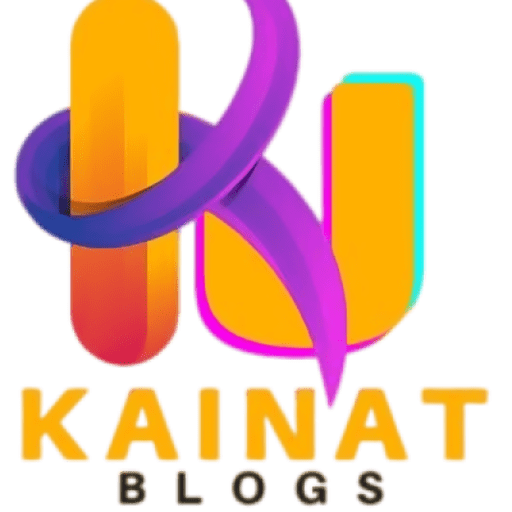Introduction
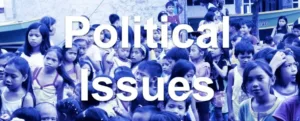
Setting the Stage: The Ever-Evolving Landscape of Global Politics
The Current World political issues are characterized by using fast adjustments and complicated dynamics, motivated by factors such as globalization, technological improvements, and shifting electricity dynamics. As international locations navigate this evolving landscape, knowledge of the underlying trends and challenges becomes imperative for policymakers and residents alike.
Importance of Staying Informed: Impact on Individuals and Nations
In the latest interconnected international, the selections made in international politics have way-reaching results for people and nations alike. From monetary rules to security strategies, staying informed about modern-day international political problems is critical for making informed selections and shaping the destiny trajectory of societies.
Global Power Shifts
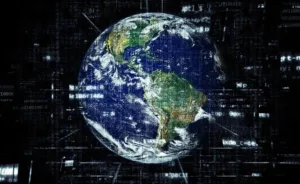
Rise of China: Implications and Challenges
The rise of China represents one of the biggest tendencies in modern-day World political issues. As China emerges as a global economic powerhouse and military force, it poses opportunities and challenges for the existing world order. The implications of China’s upward thrust enlarge throughout various domain names, including exchange relations, security dynamics, and geopolitical alignments.
United States Hegemony: Maintaining Influence in a Multipolar World
Despite the upward push of various international powers, the United States remains a dominant participant in Current World Politics Issues. However, keeping its hegemonic fame in a multipolar international provides new challenges for American policymakers. From handling strategic alliances to addressing domestic polarization, America has to navigate an unexpectedly changing geopolitical panorama to uphold its effect.
Russia’s Role: Balancing Act in International Relations
Russia’s function in cutting-edge Current World political issues is characterized by way of a sensitive balancing act between local goals and worldwide aspirations. As a chief participant in diverse geopolitical hotspots, together with the Middle East and Eastern Europe, Russia wields a significant effect in shaping global relations. However, navigating competing interests and geopolitical rivalries presents ongoing challenges for Russian policymakers.
Regional Hotspots
Middle East Turmoil: Conflict Zones and Power Struggles
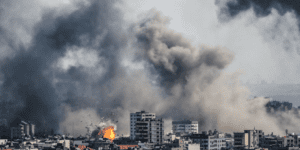
The Middle East remains a focus of contemporary Current World political issues, marked by ongoing conflicts, electricity struggles, and geopolitical rivalries. From the Syrian civil warfare to the Israeli-Palestinian battle, the place is marred by instability and humanitarian crises. The complex interaction of local actors, sectarian tensions, and overseas interventions exacerbates the demanding situation of resolving longstanding conflicts.
European Union Challenges: Brexit Fallout and Internal Strife
The European Union grapples with Current World Politics Issues and outside pressures, shaping Current World Politics issues in the location. Brexit fallout has strained EU team spirit and questioned the bloc’s destiny course. Meanwhile, internal divisions over troubles consisting of migration, financial governance, and democratic values check the resilience of European integration.
Environmental Pressures
Climate Change Policies: International Cooperation and Roadblocks
Current World political issues involve navigating the complexities of weather alternate policies on the global stage. International cooperation is critical in addressing the effect of climate exchange, with agreements such as the Paris Agreement looking to unite international locations in the fight in opposition to rising temperatures. However, roadblocks, which include differing priorities and financial concerns, gift demanding situations to enforce effective policies.
Biodiversity Loss: Implications for Ecosystems and Livelihoods
Biodiversity loss stands as an urgent issue in Current World Politics Issues. The implications for ecosystems and livelihoods are a long way-achieving, with the loss of species disrupting sensitive balances. Policymakers grapple with the need for conservation efforts, sustainable useful resource management, and worldwide collaboration to mitigate the effect of biodiversity loss.
Sustainable Development Goals: Progress and Setbacks
Amid contemporary international Current World Politics Issues, the pursuit of Sustainable Development Goals (SDGs) stays paramount. Progress is made in areas such as poverty reduction, schooling, and healthcare, yet setbacks persist. Balancing monetary improvement with environmental sustainability remains a mission, highlighting the ongoing want for global commitment and coordinated efforts.
Diplomatic Challenges
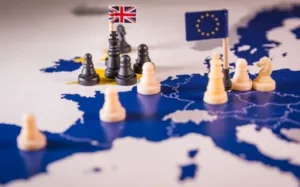
Nuclear Proliferation: Threats and Non-Proliferation Efforts
Current World Politics issues grapple with the venture of nuclear proliferation, where the acquisition of nuclear weapons via countries poses an excessive chance. International non-proliferation efforts, such as treaties and diplomatic initiatives, are searching to lower the unfold of nuclear skills and preserve international security.
Diplomatic Alliances: Strengthening Partnerships and Resolving Tensions
Diplomatic alliances are valuable to navigating modern-day international political issues. Nations seek to reinforce partnerships to cope with shared demanding situations while running to clear up tensions that may arise. The sensitive stability of electricity dynamics requires adept international relations to foster cooperation and maintain worldwide stability.
Diplomatic Tools: Soft Power, Diplomacy, and Economic Leverage
Diplomatic equipment, encompassing smooth electricity, conventional diplomacy, and monetary leverage, plays a pivotal role in cutting-edge world politics. Nations set up cultural influence, negotiation methods, and monetary energy to say their pastimes on the global stage. Effective international relations are instrumental in resolving disputes and shaping global members of the family.
Multilateral Institutions
United Nations: Role in Conflict Resolution and Peacekeeping
The United Nations (UN) assumes a central role in current world political issues related to conflict resolution and peacekeeping. The UN provides a platform for diplomatic dialogue, deploys peacekeeping missions to conflict zones, and strives to maintain global peace and security through collaborative efforts.
World Trade Organization: Arbitrating Trade Disputes and Global Commerce
The World Trade Organization (WTO) addresses current international political demanding situations in worldwide trade. It serves as a mediator in trade disputes, ensuring fair practices and fostering economic cooperation. The WTO's position is pivotal in shaping worldwide alternate policies and resolving conflicts to maintain a stable worldwide economic environment.
International Monetary Fund: Economic Stabilization and Development Aid
The International Monetary Fund (IMF) plays a crucial function in international politics using presenting monetary stabilization and development aid. As international locations face monetary uncertainties and crises, the IMF offers economic help, policy advice, and expertise to stabilize economies and promote sustainable improvement.
In navigating these diplomatic demanding situations and engaging with multilateral establishments, the global community strives to address contemporary global political problems collaboratively. The complexities of environmental pressures, diplomatic intricacies, and the position of worldwide businesses underscore the want for sustained cooperation on the worldwide stage.
Frequently Asked Questions (FAQs)
How do current world politics affect everyday individuals?
Current global political issues affect regular people in diverse methods, which include economic balance, get right of entry to to resources, and personal safety. Political choices made on the global stage can influence employment opportunities, alternate family members, and living standards. Additionally, geopolitical tensions and conflicts may also lead to disruptions in tour, commerce, and global members of the family, affecting individuals' lives and livelihoods.
What are the biggest challenges facing global leaders in addressing world political issues?
Global leaders face numerous challenges in addressing Current World Politics Issues, which include geopolitical rivalries, ideological divisions, and complex energy dynamics. Other demanding situations consist of humanitarian crises, environmental degradation, and technological disruptions. Effective governance requires navigating those challenges while fostering cooperation, diplomacy, and warfare decisions among countries.
How can individuals stay informed and engaged with global politics?
Individuals can stay informed and engaged with Current World political issues by actively searching out reliable assets of information, inclusive of legit news stores, worldwide companies, and educational guides. Engaging in discussions, attending public forums, and collaborating in civil society projects can also beautify cognizance and knowledge of world troubles. Additionally, leveraging digital platforms and social media responsibly can facilitate dialogue and understanding-sharing on world politics.
What role does social media play in shaping perceptions of world politics?
Social media performs a full-size function in shaping perceptions of worldwide politics by supplying a platform for facts dissemination, public discourse, and political activism. Social media platforms allow individuals to get entry to information and updates in real time, interact with numerous views, and take part in online communities. However, social media can also expand misinformation, polarization, and echo chambers, affecting public opinion and political discourse.
How do humanitarian crises intersect with political agendas?
Humanitarian crises often intersect with Current World Politics Issues, as they involve complex issues which include conflict, displacement, and human rights abuses. Political actors can also exploit humanitarian crises for strategic functions, consisting of exerting an effect on, gaining public assistance, or advancing geopolitical interests. Conversely, humanitarian corporations may also propose humanitarian standards, together with neutrality, impartiality, and humanity, to cope with the desires of affected populations irrespective of Current World political issues.
What are the implications of technological advancements on world politics?
Technological improvements have tremendous implications for Current World political issues, shaping verbal exchange, protection, and governance. Developments in artificial intelligence, cybersecurity, and surveillance impact military strategies, diplomatic members of the family, and global norms. Additionally, digital technologies enable new varieties of political engagement, activism, and facts war, remodeling the landscape of global politics and international relations.
How can countries effectively collaborate to tackle environmental challenges?
Countries can efficiently collaborate to tackle environmentally demanding situations through multilateral agreements, cooperative projects, and shared commitments. International frameworks which include the Paris Agreement on climate exchange offer structures for countries to set goals, exchange pleasant practices, and mobilize sources for climate movement. Additionally, partnerships among governments, corporations, and civil society groups can sell innovation, generation transfer, and capability-constructing for sustainable development.
what are Key Strategies for Resolving Diplomatic Tensions Between Nations?
Resolving diplomatic tensions between nations requires a multifaceted approach that prioritizes dialogue, diplomacy, and conflict resolution mechanisms. Some key strategies include:
Diplomatic Engagement: Direct conversation between countries through diplomatic channels is essential for addressing grievances, clarifying misunderstandings, and locating not-unusual ground.
Mediation and Facilitation: Utilizing 0.33-celebration mediators or facilitators, inclusive of global organizations or neutral international locations, can assist in facilitating dialogue and negotiation approaches, imparting a neutral platform for resolving Current World Politics Issues.
Confidence-Building Measures: Implementing self-belief-constructing measures, including transparency projects, joint tasks, and cultural exchanges, can help construct consider, and decrease tensions among nations.
Conflict Resolution Mechanisms: Establishing formal mechanisms for conflict resolution, including arbitration, mediation, or adjudication through global courts or tribunals, presents a based framework for resolving disputes peacefully.
Compliance and Implementation: Ensuring compliance with global agreements and commitments via tracking mechanisms and enforcement measures strengthens the effectiveness of diplomatic efforts and promotes agreement between international locations.
What are the Limitations of Multilateral Institutions in Addressing Global Issues?
While multilateral institutions play a critical position in addressing global problems, they also face certain obstacles that restrict their effectiveness. Some of these limitations consist of:
Complex Decision-Making: Multilateral establishments regularly contain a big variety of member states with numerous pastimes and priorities, making consensus-constructing and choice-making methods complicated and time-consuming.
Limited Enforcement Mechanisms: Unlike national governments, multilateral institutions typically lack enforcement mechanisms to compel member states to comply with agreements or resolutions, restricting their ability to cope with non-compliance and ensure duty.
Political Gridlock: Political divisions and electricity struggles among member states can cause gridlock and paralysis inside multilateral institutions, stopping timely and powerful motion on urgent international troubles.
Resource Constraints: Multilateral establishments regularly face aid constraints, along with restricted funding and staffing, which may avert their ability to put into effect applications and initiatives efficaciously.
Sovereignty Concerns: Concerns about sovereignty and countrywide autonomy can hinder cooperation and collaboration inside multilateral establishments, especially on sensitive issues consisting of human rights or protection.
How Individuals Can Contribute to Positive Change in Global Politics
Individuals can play a crucial role in shaping global politics and fostering positive change through various means:
Civic Engagement: Engaging in civic activities such as voting, advocacy, and network organizing empowers people to steer political selection-making techniques and keep leaders accountable.
Education and Awareness: Increasing consciousness and information of world problems through education, media literacy, and grassroots campaigns facilitates mobilize public opinion and help for significant exchange.
Advocacy and Activism: Participating in advocacy efforts and grassroots movements amplifies character voices and mobilizes collective action on troubles ranging from human rights and social justice to environmental sustainability and peace.
Global Citizenship: Embracing a experience of world citizenship and cohesion with human beings round the sector promotes empathy, cross-cultural know-how, and cooperation throughout borders, transcending country wide obstacles and fostering a experience of shared duty for the commonplace suitable.
Social Media and Digital Activism: Harnessing the power of social media and digital platforms enables individuals to connect, organize, and mobilize for social and political causes, driving awareness and advocacy on a global scale.
Conclusion
Reflecting on the Interconnectedness of Current World Politics Issues
The interconnectedness of cutting-edge global politics troubles underscores the complicated net of relationships and dependencies shaping our worldwide landscape. From economic interdependence to shared protection worries, countries are increasingly related in ways that transcend traditional obstacles. Recognizing this interconnectedness is important for understanding the ripple effects of movements taken at the country wide, nearby, and worldwide ranges, highlighting the need for collaborative techniques to deal with not unusual demanding situations and sell mutual prosperity.
Call to Action: Empowering Individuals to Engage and Advocate for Change
Empowering individuals to interact and suggest for trade is imperative in riding meaningful progress on urgent worldwide problems. By fostering a subculture of civic participation, education, and activism, we will mobilize grassroots actions and extend diverse voices, making sure that the concerns and aspirations of ordinary residents are pondered in political decision-making procedures. This name to movement emphasizes the transformative power of collective motion and underscores the significance of inclusive, bottom-up procedures to advancing social, political, and monetary justice.
Importance of Continued Dialogue and Cooperation for a Sustainable Future
Continued talk and cooperation are fundamental for constructing a sustainable future grounded in peace, prosperity, and shared prosperity. By promoting open communication, fostering mutual expertise, and looking for common floor, nations can conquer variations and forge partnerships that transcend geopolitical rivalries and ideological divides. This emphasis on talk and cooperation reaffirms the value of diplomacy and multilateralism as essential equipment for addressing global demanding situations, navigating complex geopolitical dynamics, and charting a direction closer to a extra inclusive and resilient international order.
